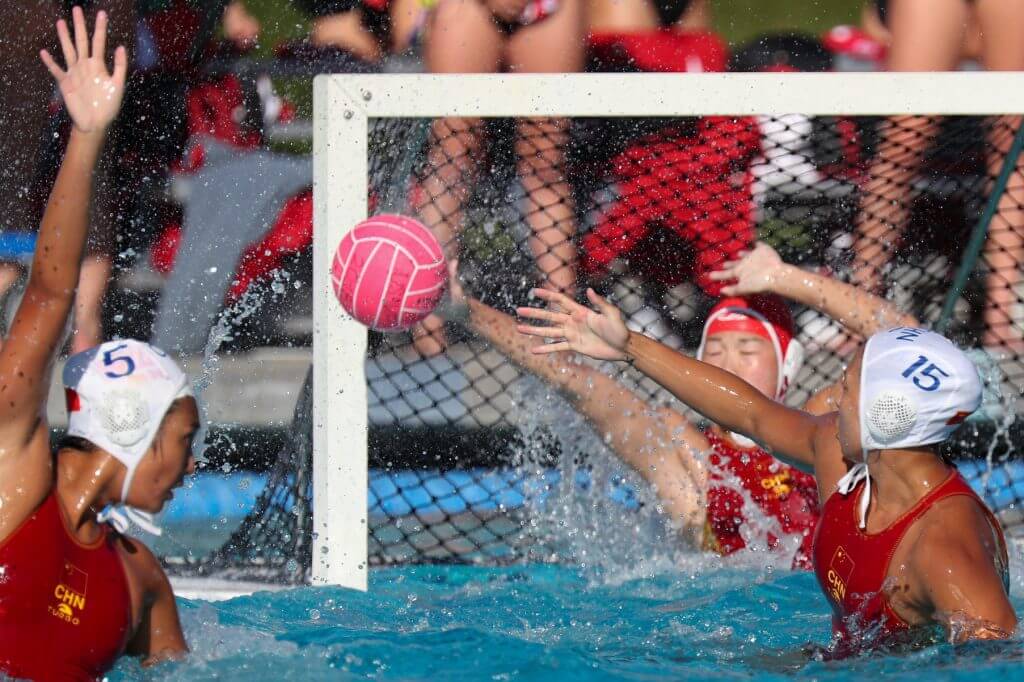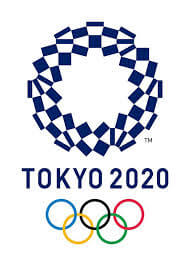Coronavirus Claims First Tokyo Olympic Victim: 2020 Asian Water Polo Championships

Fears regarding the spread of the highly contagious novel coronavirus—now officially dubbed “2019 nCoV” or “Covid 19”—are proving nearly as potent as the disease itself. Those who have been gauging its growing impact can feel little surprise that the 2020 Asian Water Polo Championships, to have been held this week in Nur-Sultan, Kazakhstan have been cancelled.
 The competition, featuring men’s and women’s teams from China, Iran, Japan South Korea, and host Kazakhstan, would have determined the Asian representatives for the 2020 Olympics, to be held July 24–August 9 in Tokyo, Japan.
The competition, featuring men’s and women’s teams from China, Iran, Japan South Korea, and host Kazakhstan, would have determined the Asian representatives for the 2020 Olympics, to be held July 24–August 9 in Tokyo, Japan.
The decision to cancel was precipitated by the Kazakh government, which last month suspended all flights and visas from China due to Covid-19 concerns, as first reported by Ivan Curcic in Total Water Polo. The disease originated in Hubei Province in central China, where it has killed thousands, and has since spread to sicken countless others worldwide.
Will this development be a backbreaker for the sport? FINA, the worldwide governing body for aquatic sports, has confirmed that the Asian Swimming Federation (AASF) will not hold a qualification tournament for the Asian water polo teams hoping to represent their country in the Olympics. No other Asian country, including Kuwait, Singapore, South Korea and Thailand, was willing to host an international event that includes athletes with potential exposure to the frequently fatal virus.
[Amid Coronavirus Outbreak, Olympic Postponement ‘Has Not Been Considered’]
It’s not for want of trying. There were reportedly discussions of alternative locations for hosting the Asian qualifier, but no country was eager to put its population at risk. News reports suggest that there are approximately 60,000 confirmed coronavirus cases worldwide, with the vast majority in mainland China. At least 1,357 deaths due to infection have been confirmed, including one death in Japan, the nation’s first, which was announced today.
And Japan, which will be hosting its first Olympics since the 1964 Games, has been struggling with a health crisis concerning the Diamond Princess cruise ship, which is stuck in Tokyo Bay under a 14-day quarantine set to expire on February 19.
Whose ox gets gored?
One possibility was to fold the Asian Championships into upcoming World Qualification Tournaments that takes place next month—in Rotterdam from March 22–29 for the men and in Trieste from March 8–15 for the women. But, as with the situation with Asian nations, there reportedly was reluctance to include athletes who might have been exposed to the coronavirus.
At length, a decision was taken to use results from the 2018 Asian Games men and women tournaments as the criteria to qualify teams for the region’s berths in Tokyo. Based upon this criteria, Kazakhstan has qualified for the men and China for the women. By virtue of being the host country, the Japanese men’s and women’s teams have already qualified.

Photo Courtesy: Xiong Qi/Xinhua
According to a statement from FINA, though, Asian teams that are so inclined still have a path to qualify for the Olympics. There are two spots for Asian teams in the qualifying tournaments in Europe; as specified by FINA, the second and third men’s and women’s teams from the 2018 Championship are welcome at the Olympic Games qualification tournaments.
If any of these teams decide not to participate, then the next team in the Asian Games ranking will be notified.
The team most affected by this outcome is the Chinese men. Coached by Petar Porobic, they finished fourth in 2018, losing by a goal to eventual winner Kazakhstan in the semifinals, and by penalties to Iran in the third-place match. The question remains if they will be included in the Rotterdam draw; FINA has announced the draw for the men, with the two Asian competitors listed as “ASIA 1” and “ASIA 2.”
Both the Chinese men’s and women’s water polo teams travel and compete abroad, with the men having spent the bulk of the previous year training and playing in Europe, while the Chinese women have primarily trained in America. Any potential bias against them will certainly represent an extreme response to a worldwide health crisis that has now spread to over 25 countries in the Asia-Pacific region as well as Europe, North America and the Middle East.
Calamity stalks the Olympics
It’s perhaps understandable that there has been extreme precautions taken at this stage, with so little—including exactly how the virus is transmitted—known about Covid-19. The Tokyo Games are still five months away, and there have been reports that a vaccine may be ready by April. But with quarantines the most popular, if not necessarily the most effective, means of containing the virus, the question remains: how might Covid-19 impact the world’s largest athletic event.
In a statement released Wednesday, the International Olympic Committee struck a calming if not necessarily decisive posture: “Tokyo 2020,” it said, “will continue to collaborate with all relevant organizations which carefully monitor any incidence of infectious diseases, and we will review any countermeasures that may be necessary with all relevant organizations.”
The IOC is adamant that the Games will not be delayed by one of the biggest global health crises in recent memory. Which is to say: let’s wait and see.




They need to get the olympics out of Asia for this year.
Really sad so sorry
I’m surprised there haven’t been rumblings of relocating some of the competitions. Maybe bring the swimming to Omaha? Atlanta? How long would it take Myrtha to put a pool smack in the middle of Madison Square Garden?! I wonder if some of the smaller countries are waiting for someone to the lead of this.
They also cancelled world track championships in China